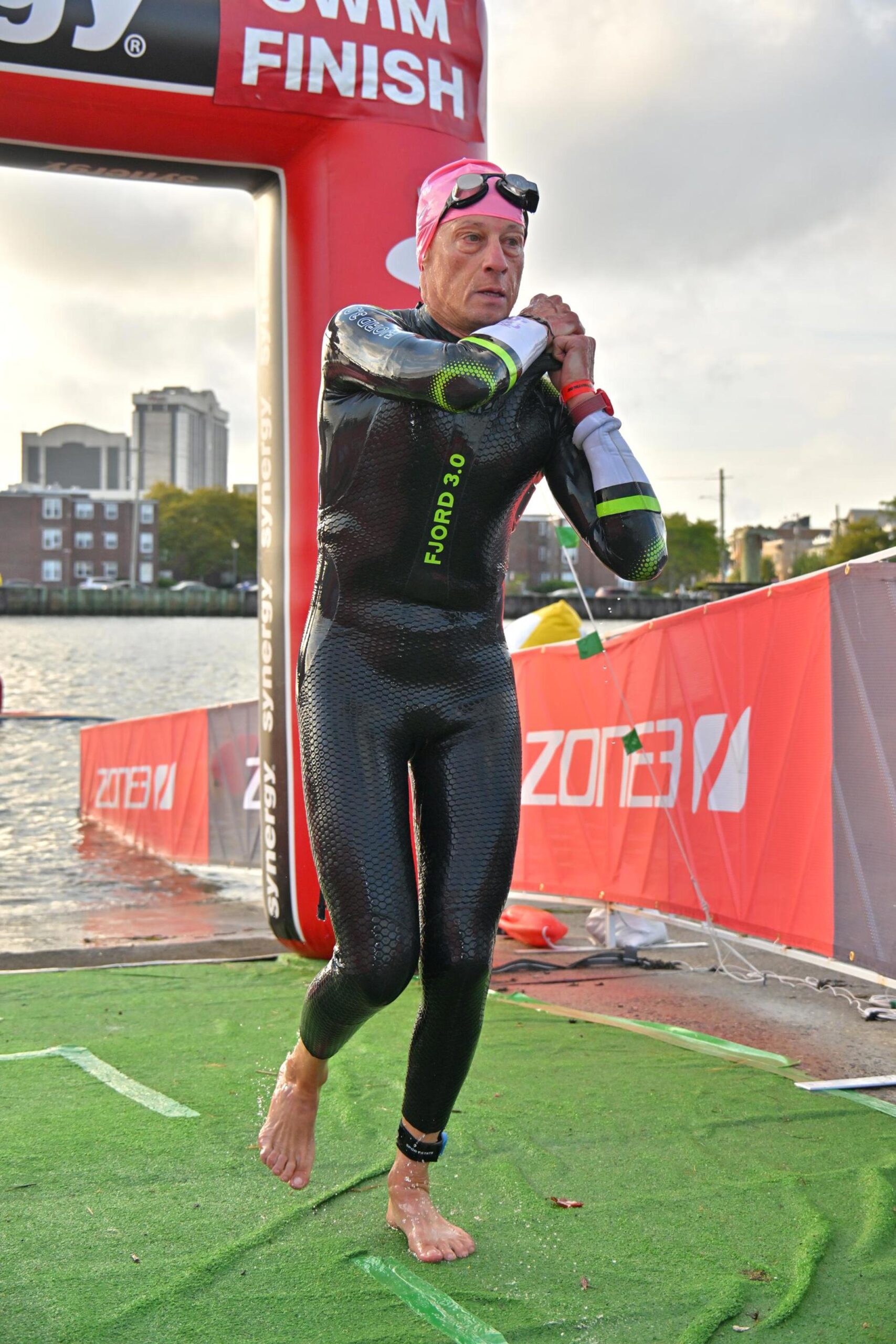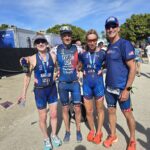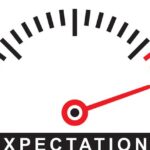I just returned from the World Triathlon Championships in southern Spain where I raced in the Sprint and Mixed-relay events. This article will focus on the Sprint event last Thursday.
![]() First some backstory. It’s been a mostly good season for me with some frustrations and disappointments along the way. On the plus side, I won another national championship and placed in the top 4 in four of my five national championship races. On the minus side, I have been struggling all year with my swim speed and my power output on my bike and I have had disappointing races at the Olympic distance all season including an 11th at Nationals. Additionally, I’ve had several races where I just didn’t have good legs on the bike or run.
First some backstory. It’s been a mostly good season for me with some frustrations and disappointments along the way. On the plus side, I won another national championship and placed in the top 4 in four of my five national championship races. On the minus side, I have been struggling all year with my swim speed and my power output on my bike and I have had disappointing races at the Olympic distance all season including an 11th at Nationals. Additionally, I’ve had several races where I just didn’t have good legs on the bike or run.
Expectations
Add to the mix the fact that I had two 3rd places, a 5th, and a 10th at the World Championships in 2023 and I entered the World Championships last week with a strange combination of less than stellar confidence and the weight of expectations from my 2023 successes.
Championships last week with a strange combination of less than stellar confidence and the weight of expectations from my 2023 successes.
Setting expectations at the World Championships is a bit of a crap  shoot because there is so much uncertainty about who will show up and who will age up to my age group. At my age, performance declines pretty quickly from year to year, so the “newbies” are often just plain faster.
shoot because there is so much uncertainty about who will show up and who will age up to my age group. At my age, performance declines pretty quickly from year to year, so the “newbies” are often just plain faster.
I tell the athletes I work with that “expectations are a kiss of death” in competition because they can feel like a weight vest that burdens them. I did my best to “practice what I preach” and tamp down my own expectations, but it was difficult because I do triathlons not to participate, but to push my limits, compete, and see how I stack up against the best in the world.
own expectations, but it was difficult because I do triathlons not to participate, but to push my limits, compete, and see how I stack up against the best in the world.
You might think that because of what I do for a living, I should have all this down in my own athletic life, but before I’m a mental coach, ![]() I’m a human being who is also very competitive, and I can be as vulnerable as any athlete to the psychological and emotional challenges of competing against the best in the world. I entered these races wanting to repeat my successes from last year, yet not feeling that I was in a great position to do so, clearly an internal conflict that didn’t serve me well. Perhaps the one advantage I have because of my work is that I am very aware of these challenges and can then use various mental tools to “keep my head on straight.”
I’m a human being who is also very competitive, and I can be as vulnerable as any athlete to the psychological and emotional challenges of competing against the best in the world. I entered these races wanting to repeat my successes from last year, yet not feeling that I was in a great position to do so, clearly an internal conflict that didn’t serve me well. Perhaps the one advantage I have because of my work is that I am very aware of these challenges and can then use various mental tools to “keep my head on straight.”
Excuses
One thing I marvel at after triathlon races (and this applies to any sports competition or life in general) is that what you most often hear after a race are excuses about why triathletes didn’t do better. I make a distinction between excuses and explanation. Simply put, we make excuses to protect ourselves in three ways.
after a race are excuses about why triathletes didn’t do better. I make a distinction between excuses and explanation. Simply put, we make excuses to protect ourselves in three ways.
First, we protect our perceptions of ourselves as capable triathletes and competent people. For anyone who cares deeply about our sport,  we invest our self-identity (who we are) and self-esteem (how we feel about ourselves), not to mention immense amounts of time, energy, and money, in our competitive efforts. A disappointing performance is threatening to that psychological and practical investment; we don’t want to lose everything we’ve invested.
we invest our self-identity (who we are) and self-esteem (how we feel about ourselves), not to mention immense amounts of time, energy, and money, in our competitive efforts. A disappointing performance is threatening to that psychological and practical investment; we don’t want to lose everything we’ve invested.
Second, excuses protect us from feeling the unpleasant, and sometimes painful, emotions that are common after a poor performance including disappointment, sadness, frustration, anger, and embarrassment. Excuses enable us to avoid accountability for our failures which in turn protects us from feeling those uncomfortable emotions.
and embarrassment. Excuses enable us to avoid accountability for our failures which in turn protects us from feeling those uncomfortable emotions.
Third, as social beings, we want to protect how others perceive us. A poor race performance may cause our fellow competitors to think that maybe we’re not as good as they thought we were. As a result, we may feel that we will lose the respect and esteem of other triathletes.
To safeguard our own perceptions of ourselves, the emotions we may  experience, and the impressions that others hold of us, we come up with excuses that enable us to tell ourselves and those around us, “Yeah, I didn’t do well today, but here are my excuses why, so you and I should continue to believe that I’m a good triathlete and a good person.”
experience, and the impressions that others hold of us, we come up with excuses that enable us to tell ourselves and those around us, “Yeah, I didn’t do well today, but here are my excuses why, so you and I should continue to believe that I’m a good triathlete and a good person.”
Two problems here. First, there is no excuse line in the results. You finished where you finished and that’s it. Your placing is all you or others see and learn about your performance that day Second, ultimately, nobody really cares about how we did in the race other than ourselves because we’re not that important to other people (except to our family and friends who could care less how we finish). When you worry that others are judging you negatively, the reality is that they are likely not thinking about you at all, except perhaps worrying that you are judging them negatively.
ultimately, nobody really cares about how we did in the race other than ourselves because we’re not that important to other people (except to our family and friends who could care less how we finish). When you worry that others are judging you negatively, the reality is that they are likely not thinking about you at all, except perhaps worrying that you are judging them negatively.
My recommendation after subpar races, and this is something that I try to practice what I preach, is to simply say, “I didn’t have a good race” and end that sentence with a period rather than a comma and a but followed by a string  of excuses. Remind yourself that nobody else of importance to you really cares and you can’t reach a larger audience for your excuses because, as I noted above, there is no excuse line in the results.
of excuses. Remind yourself that nobody else of importance to you really cares and you can’t reach a larger audience for your excuses because, as I noted above, there is no excuse line in the results.
Explanations
The confusing thing about excuses and explanations is that they can sound exactly the same (I’ll share a few of what I hope will come across as explanations of my own shortly). The key difference is the purpose behind what you say and to whom you share this information. Remember that the purpose of excuses is to protect yourself and you want to broadcast your excuses to as large an audience as you can for maximum protection against negative judgment.
The purpose of explanations is to learn from your poor performances with the goal of not repeating them in future races. And, because of this purpose, you only need to target a few people in sharing your explanations of why the race didn’t go as planned, most notably, your coach (if you have one), training partners (who might be able to provide some insights and solutions), and perhaps family and friends (who may provide support and commiseration).
A healthy explanation could be “I failed to get on someone’s feet in the swim,” “I was way too conservative on the technical bike course,” and “I went out too fast at the start of the run.”
I only share my explanations below with you as illustrations of this discussion (otherwise I would just share them with my coach). Though I will admit that, as a human being and a committed triathlete who considers himself pretty good, I may be unconsciously using this article to make excuses to protect my ego.
World Championship Sprint
There are three things I like to experience before a race: familiarity, predictability, and control. The cumulative effect of these feelings is comfort, calm, and confidence. One thing I do before big races is look at who is competing and, for those names I don’t recognize, see how they did last year. This exercise helps me to manage my expectations. There are, however, some big risks to this, namely, not accounting for fast people who didn’t race last year or who aged up. And my evaluation before the World Championships was a massive failure, as eight guys who I didn’t account for aging up beat me.
I went into the Sprint race not expecting to make top 5 again, but, after reviewing the start list, I thought top 10 would be possible. I felt healthy, fit, rested in the days leading up to the race, and did my usual routine between when I arrived in Spain and the day of the race. As usual, I was a little nervous before the race (it’s called “anticipatory arousal” in psych-speak), but once I got to the swim start, I was positive and fired up.
Unfortunately, things went from not so good to bad to worse as the race progressed. Here is the beginning of my “explanations.” In the swim, I didn’t see the far buoy, so took a sharp right at the first buoy (I was in good company, as Cassandre Beaugrand, the recent Olympic gold medalist and winner of the WTCS race in Spain, did the same thing…but she won anyway!). Fortunately, I realized it pretty quickly, so I didn’t get too far off course. As usual, I was relatively slow, but I did see one positive from the swim, a five stroke per minute (spm) improvement from previous races. I usually race at around 65 spm and my goal was to increase it to 70 (I use FORM swim goggles with a heads-up display which enabled me to get real-time feedback during the swim).
I pride myself on my transitions, and my T1 was the fastest in my age group, but I had one major fail, namely, not seeing my bike, running past it, and needing to reverse course. This mistake was a harbinger of what lay ahead in T2. And I nailed my flying mount which I’ve been practicing a lot leading up to Worlds.
My bike was really frustrating. I rode almost the entire course alone. There were certainly opportunities to draft, but, as has happened frequently this season, I simply didn’t have the wattage to “grab a wheel” and stay with a draft pack. This meant that I was pushing hard on my own and burning a ton of matches that those who were drafting weren’t. By my estimates, my inability to work with others on the bike cost me at least two minutes.
I also nailed my flying dismount heading toward T2, but then things really went south. I was running down the first straight guiding my bike with my right hand on the saddle. But a gust of wind blew my bike toward me, my left leg scraped part of the fence causing a bloody gash (no stitches needed after), and I almost fell. Then, on the return to my row on the third long straight of the transition area, the wind again through my bike out of line and I did a complete faceplant. And, to add insult to injury, I once again ran past my bike and had to double back. More insult added by my struggles to get my running shoes on. My T2 time wasn’t so bad, even with all the miscues, but I still lost another 30 seconds minimum in T2.
My run is my one great strength in triathlon, and it has enabled me to get the results that I’ve achieved at the national and world levels, despite my relatively weak swim and bike. But, as soon as I headed out on the run course, I knew my legs weren’t there; they felt heavy, and it took a lot of effort to keep my stride and turnover. My goal quickly went from crushing the run to getting the most out of what I had that day. That’s where I had to really practice what I preach because I was not feeling good. Using every tool in my mental toolkit (positive self-talk, breathing, smiling, wanting no regrets), I pushed as hard as I could to the finish.
On the plus side, I passed 15 guys on the run. On the minus side, I finished in 19th (out of 84), admittedly, not that bad, but well below even my tamped-down expectations.
Not to Self re: Explanations
To emphasize that the above were explanations, not excuses, here are my most significant takeaways.
- Pay more attention to the buoys on the swim course.
- Know where my bike is precisely in the transition racks.
- Study the wind patterns in the transition area before a race.
- Improve my running with my bike with my right hand on the saddle or, if it gets dicey, just steer with right hand on the stem.
- Pace myself better if I’m riding alone on the bike course so I still have legs to leverage my run speed.
- Practice putting on my running shoes when I’m tired, wobbly, and out of breath from the run into T2.
- Major off-season note to self: Devote time and effort to increasing my strength and wattage and wattage.
I’ll post the analysis of lessons learned from my Mixed-relay performance within the week.







